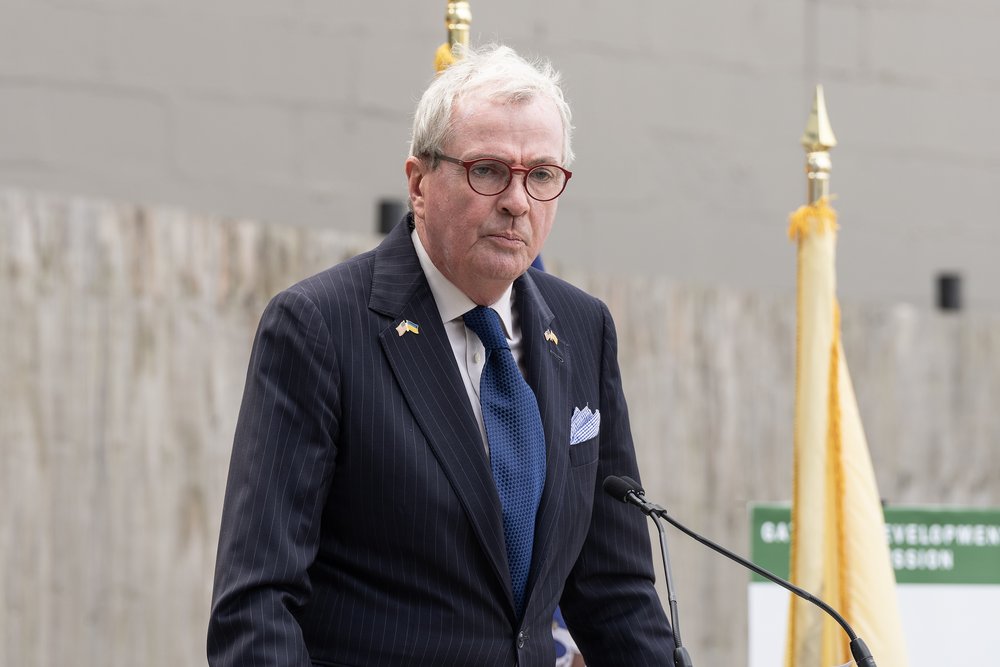New Jersey asks judge to block congestion pricing in Manhattan before it starts Sunday
Jan. 1, 2025, 1:01 p.m.
Gov. Phil Murphy’s attorney claims a judge’s ruling this week effectively rescinded key federal approvals for the tolling program.

The state of New Jersey is not giving up its fight to block congestion pricing from taking effect in New York City, just days before the program is slated to start.
An attorney for New Jersey Gov. Phil Murphy filed a last-ditch attempt late Tuesday night to prevent the MTA from flipping on its automated cameras, which will charge drivers a toll when they enter Manhattan below 60th Street beginning on Sunday.
The attorney, Randy Mastro, asked U.S. Senior Judge Leo Gordon to clarify a decision he rendered earlier this week that ordered the MTA and the Federal Highway Administration to provide more specifics about a portion of the congestion pricing plan.
Gordon’s order did not explicitly state whether the controversial toll could take effect as scheduled. But Mastro argued that Gordon’s ruling effectively rescinded key federal approvals that should prevent New York from enacting the program, at least for now.
The judge is set to hold a hearing on New Jersey’s request on Friday afternoon.
“To permit the MTA to move forward with this nation’s first-of-its-kind congestion pricing scheme before the FHWA has even begun, let alone completed, the additional review that this Court has ordered would be fundamentally inconsistent with [federal appeals] law and the import of this Court’s decision,” wrote Mastro, who served as a deputy to then-New York City Mayor Rudy Giuliani and was a recent nominee of Mayor Eric Adams’ for the city’s corporation counsel before withdrawing.
Gordon’s decision on Monday heightened a high-stakes disagreement between New York and New Jersey, which are both led by Democratic governors who have generally been allied in the past. But the more than yearlong legal fight over congestion pricing has exposed rifts over a policy that supporters say is crucial for reducing gridlock and emissions in New York City while boosting the transit system, and that opponents say will economically burden commuters and could harm surrounding communities.
New York Gov. Kathy Hochul and MTA Chair Janno Lieber argued that the judge’s ruling does not prevent the program from launching this weekend. Murphy’s office took the opposite stance, prompting Mastro’s Tuesday court filing.
The MTA plans to begin charging the years-in-the-making toll — which is $9 for passenger vehicles during daytime hours — absent any further order from the judge.
Congestion pricing is designed to cut down on traffic in Manhattan while generating billions of dollars in revenue to bolster MTA service and infrastructure, according to the programs’ proponents. But it could also cause additional traffic in areas outside of what is known as the Central Business District.
Gordon’s recent ruling ordered federal and MTA officials to explain why mitigation plans for the program allocate more money to combat the effect of any such traffic in the Bronx than that in New Jersey. The judge also requested more detail about what those plans could entail.
The base toll of $9 for most drivers entering Manhattan below 60th Street applies from 5 a.m. to 9 p.m. on weekdays and 9 a.m. to 9 p.m. on weekends. During overnight hours, it drops down to $2.25.
The toll rate varies for commercial vehicles like trucks and buses but is generally higher for them than for passenger vehicles. For motorcycles, it’s $4.50 during the peak period and $1.05 overnight, according to the MTA.
This story has been updated with additional information.
How much will you actually pay for congestion pricing in NYC? Use our map to find out. MTA moving ahead with congestion pricing on Jan. 5 despite NJ’s legal efforts Port Authority to hike tolls the same day congestion pricing launches in NYC